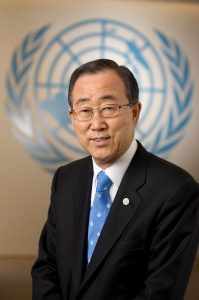
Ban Ki-Moon, 8th Secretary-General of the United Nations and Chairman, National Council of Climate and Air Quality
More money and collaboration between those funding efforts to tackle air pollution could save countless lives and deliver a wide range of health, environmental and development benefits, the Clean Air Fund said in a report published today. The call, which is supported by 8th United Nations (UN) Secretary General Ban Ki-moon, comes as the UN marks its first International Day of Clean Air for blue skies.
The report, The State of Global Air Quality Funding 2020 provides the only global overview of funding for air quality initiatives, and the first assessment of Official Development Finance for this issue. Its aim is to identify gaps in funding and opportunities for strategic investment and collaboration to deliver clean air for all.
The Clean Air Fund was able to identify just US $273m in grant funding to directly tackle outdoor air pollution between 2015 and 2019. This represents a tiny fraction of development funding overall, and falls far short of what is needed when 90% of the world’s population live in places where the air they breathe is damaging their health. Air pollution has been described as a major risk to public health by the World Health Organisation (WHO). In addition to being hazardous for human health and the climate, outdoor air pollution also threatens biodiversity and crop yields.
“The clean air movement is at a tipping point. Outdoor air pollution is responsible for over 4 million deaths every year. It shares many of the same causes as climate change, for which we are dangerously close to a point of no return. At the same time, political will to tackle air pollution is rising. In this context, this report gives an important basis for targeting funding where it is most urgently needed and allows funders to see who else is working on similar or complementary projects,” said Ban Ki-moon, 8th Secretary General of the United Nations and currently Chairman, Republic of Korea National Council of Climate and Air Quality.
The report notes that the need for action has increased during the COVID-19 pandemic. Exposure to toxic air has worsened the health of communities globally, leaving millions predisposed to the most severe impacts of the disease. It also makes clear that we now have a critical window of opportunity to address air pollution as a central part of the global recovery effort, which would deliver on multiple development goals at once. This will require bold, decisive and informed leadership, and effective global collaboration.
The report highlights potential opportunities for such collaboration between philanthropic and government-funded efforts to tackle different elements of the problem. For example, governments tend to focus on implementing technical solutions, whereas foundations increasingly look towards data and research which can improve our understanding of the problem and support effective policies. The Clean Air Fund notes that these approaches are strongly complementary, so greater cooperation would ensure maximum overall return on the funds invested.
“Every human being has the right to clean air. If we can deliver it, we will also unlock solutions to other critically pressing problems, like climate change and deadly diseases. The benefits would reach the poorest and most vulnerable first. This research shows there are opportunities for funders to work together strategically to ensure our efforts support and reinforce each other. We owe it to ourselves and future generations to seize these chances,” said Dr Maria Neira, Director, Public Health, Environment and Social Determinants of Health Department, World Health Organisation.
Contact: Oliver Courtney, oliver.courtney@digacommunications.com, +44 7815 731889